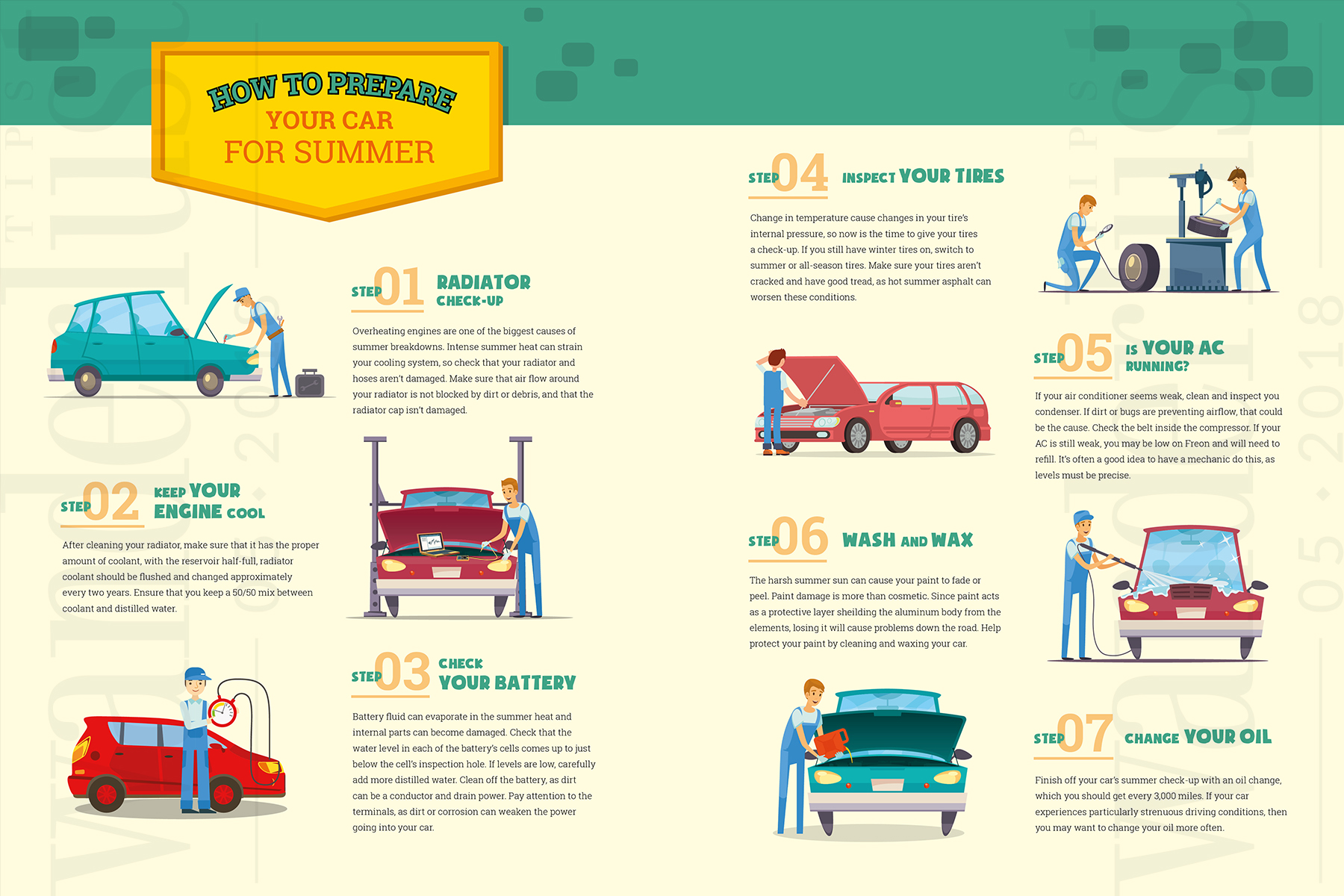Before you head out on the highway, prepare your car for summer with these essential vehicle service and maintenance tips.
[rpi]
Step 1. Radiator check-up
Overheating engines are one of the biggest causes of summer breakdowns. Intense summer heat can strain your cooling system, so check that your radiator and hoses aren’t damaged. Make sure that air flow around your radiator is not blocked by dirt or debris, and that the radiator cap isn’t damaged.
Step 2. Keep your engine cool
After cleaning your radiator, make sure that it has the proper amount of coolant, with the reservoir half-full, radiator coolant should be flushed and changed approximately every two years. Ensure that you keep a 50/50 mix between coolant and distilled water.
Step 3. Check your battery
Battery fluid can evaporate in the summer heat and internal parts can become damaged. Check that the water level in each of the battery’s cells comes up to just below the cell’s inspection hole. If levels are low, carefully add more distilled water. Clean off the battery, as dirt can be a conductor and drain power. Pay attention to the terminals, as dirt or corrosion can weaken the power going into your car.
Step 4. Inspect your tires
Change in temperature cause changes in your tire’s internal pressure, so now is the time to give your tires a check-up. If you still have winter tires on, switch to summer or all-season tires. Make sure your tires aren’t cracked and have good tread, as hot summer asphalt can worsen these conditions.
Step 5. Is your ACrunning?
If your air conditioner seems weak, clean and inspect you condenser. If dirt or bugs are preventing airflow, that could be the cause. Check the belt inside the compressor. If your AC is still weak, you may be low on Freon and will need to refill. It’s often a good idea to have a mechanic do this, as levels must be precise.
Step 6. Wash and Wax
The harsh summer sun can cause your paint to fade or peel. Paint damage is more than cosmetic. Since paint acts as a protective layer sheilding the aluminum body from the elements, losing it will cause problems down the road. Help protect your paint by cleaning and waxing your car.
Step 7. Change your oil
Finish off your car’s summer check-up with an oil change, which you should get every 3,000 miles. If your car experiences particularly strenuous driving conditions, then you may want to change your oil more often.
Wanderlust Tips

